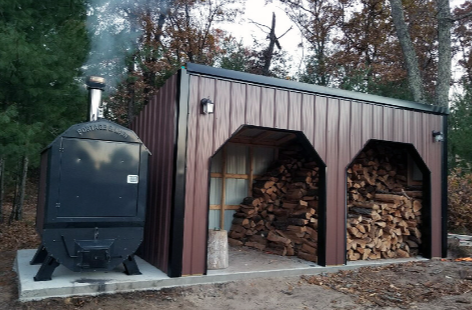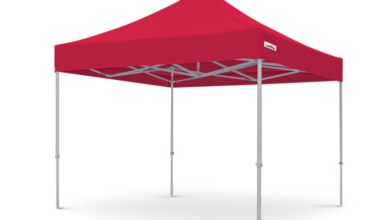Enhancing Energy Efficiency with an Outdoor Boiler

Outdoor boilers, also known as outdoor wood furnaces, are increasingly becoming popular for homeowners looking to enhance energy efficiency and reduce their heating costs.
These boilers are designed to provide heat to a home or building by burning wood or other biomass materials outside, which helps in improving indoor air quality and reducing the reliance on traditional fossil fuels.
In this article, we will explore the benefits of outdoor boilers and how they can significantly contribute to enhancing energy efficiency.
1. Efficient Heating Method
Outdoor boilers offer an efficient heating method by burning wood or biomass materials at high temperatures. This process generates heat that is then transferred to the water, which is circulated through the home or building via insulated pipes.
By utilizing a renewable energy source like wood, outdoor boilers can significantly reduce the carbon footprint associated with heating. Outdoor boilers offer an efficient heating method by burning wood or biomass materials at high temperatures.
Unlocking efficient heating methods, Outdoor Boiler presents a reliable solution for optimal warmth in outdoor spaces. Harnessing innovative technology, our boilers provide cost-effective heating while minimizing environmental impact. This process generates heat that is then transferred to the water, which is circulated through the home or building via insulated pipes.
By utilizing a renewable energy source like wood, outdoor boilers can significantly reduce the carbon footprint associated with heating. This environmentally friendly heating option provides sustainable warmth while also being cost-effective in the long run.
2. Cost-Effective Heating Solution
One of the key advantages of outdoor boilers is that they are a cost-effective heating solution in the long run.
While the initial investment may be higher than traditional heating systems, the savings on energy bills over time can be substantial.
Wood, which is the primary fuel source for outdoor boilers, is often more affordable than oil, gas, or electricity.
Enhancing energy efficiency with an outdoor boiler presents a cost-effective heating solution, optimizing heat transfer and reducing energy waste.
By utilizing advanced combustion technology and efficient distribution systems, it maximizes the utilization of wood fuel, ultimately lowering heating costs. Invest in an outdoor boiler to enhance your home’s energy efficiency while saving on heating expenses
3. Versatility in Fuel Options
Outdoor boilers offer versatility in fuel options, allowing homeowners to choose from a variety of biomass materials to burn.
In addition to wood, some outdoor boilers can also burn corn, pellets, or other organic materials. This flexibility in fuel options can be advantageous, especially in regions where certain types of biomass are more readily available or cost-effective.
Moreover, the ability to switch between different types of biomass fuels can also provide a level of security and resilience against fluctuations in fuel prices or availability.
This versatility makes outdoor boilers a popular choice for homeowners looking for an efficient and sustainable heating option for their homes.
4. Remote Operation and Monitoring
Many outdoor boilers come equipped with advanced technology that enables remote operation and monitoring.
Homeowners can control the temperature, check the fuel levels, and monitor the system performance from a smartphone or computer.
This level of automation not only enhances convenience but also allows for optimal energy efficiency by adjusting settings as needed.
This level of automation not only enhances convenience but also allows for optimal energy efficiency by adjusting settings as needed.
Additionally, remote monitoring can provide alerts for maintenance needs or potential issues, ensuring that the outdoor boiler operates smoothly and efficiently.
Overall, the advanced technology integrated into outdoor boilers offers homeowners peace of mind and the ability to easily manage their heating system from anywhere.
Read more Why Choose a Dog Boarding Resort for Your Furry Friend’s Next Vacation
5. Reduced Indoor Air Pollution
By burning wood or biomass materials outside, outdoor boilers help in reducing indoor air pollution compared to traditional wood stoves or fireplaces.
The combustion process takes place away from the living space, minimizing the release of particulate matter and harmful gasses indoors.
This contributes to better indoor air quality and a healthier environment for occupants. Outdoor boilers are a more environmentally friendly option for heating homes compared to traditional wood stoves or fireplaces.
By burning wood or biomass materials outside, these boilers help reduce indoor air pollution significantly.
The combustion process occurring away from the living space minimizes the release of particulate matter and harmful glasses indoors.
As a result, outdoor boilers contribute to better indoor air quality and create a healthier environment for occupants.
6. Integration with Existing Heating Systems
Outdoor boilers can easily integrate with existing heating systems, including radiant floor heating, forced air furnaces, or hot water baseboards.
This seamless integration allows homeowners to supplement their current heating setup with an outdoor boiler, providing an additional source of heat that can further enhance energy efficiency and comfort in the home.
Outdoor boilers are versatile heating options that can be easily incorporated into existing heating systems, such as radiant floor heating, forced air furnaces, or hot water baseboards.
This integration is seamless, allowing homeowners to complement their current heating setup with an outdoor boiler.
By doing so, they can benefit from an extra source of heat that improves energy efficiency and enhances the overall comfort of their home.
7. Environmental Sustainability
Choosing an outdoor boiler for heating purposes aligns with environmental sustainability goals due to the use of renewable biomass materials.
Wood is a carbon-neutral fuel, meaning it does not contribute additional carbon dioxide to the atmosphere when burned.
By opting for an outdoor boiler, homeowners can play a part in reducing greenhouse gas emissions and promoting a more sustainable heating solution.
Outdoor boilers for heating purposes are an environmentally sustainable choice because they utilize renewable biomass materials. Wood, a commonly used fuel in outdoor boilers, is considered carbon-neutral.
This means that when wood is burned, it releases the same amount of carbon dioxide into the atmosphere as it absorbed while growing, making it a more eco-friendly heating option.
By selecting an outdoor boiler, homeowners can actively contribute to the reduction of greenhouse gas emissions and support a more sustainable approach to heating their homes.
Conclusion
Enhancing energy efficiency with an outdoor boiler offers a range of benefits, from efficient heating and cost savings to environmental sustainability and improved air quality. As more homeowners seek alternative heating solutions to reduce their carbon footprint and lower energy costs, outdoor boilers present a compelling option. With advancements in technology and a focus on renewable energy sources, outdoor boilers are poised to play a significant role in the future of residential heating.






